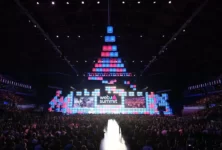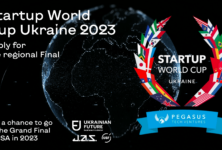Please, share ❤️
Here is an interview with the co-founder of Huobi Group about the Metaverse and blockchain technologies.
Metaverse is being talked about by the world and traditional businesses are racing, what do you see in the future? Is it like sci-fi movies about an avatar world that humans will actually live in? What is your prediction for the Metaverse in the next 5, 10 years?
A fully functioning, life-like metaverse doesn’t exist yet, so at this point, we can only describe how it may look in the near future. The rough idea is that the metaverse will be an immersive internet which will provide people with the same possibilities they have in the real world, such as free movement, ownership, and exchange of goods and assets. Additionally, it will be a place where users can spend time interacting with each other in any virtually created location.
This hybrid of real and virtual spaces will enable people to play games, work, shop, exercise, and interact socially whilst being in their preferred physical location, such as at home, for example. People from all around the physical world will be able to meet in the same virtual place. They could meet on the shoreline of a digitally created beach, where they’ll be able to watch the sunset, hold conversations and have the same sense of presence with one another without leaving the comfort of their homes.
With the metaverse, it’s likely that many Internet activities will move from 2D experiences, like reading text or viewing pictures and videos on a screen, to 3D experiences. Therefore, instead of using a phone to view lists of products when shopping, users can walk around a virtual store and view the products as they really are. You are not just viewing the content, you are a part of it. Another concept is augmented reality (AR) technologies that would bring digital items and people to the physical world through holograms. They would move, feel and appear as real people, connecting the physical and digital world.
While it’s too early to determine if the metaverse will live up to the hype – and really be able to inspire and provoke human emotions at the same level as the natural and physical world can – one thing we do know is that it’s pushing the boundaries of technology and social interaction, and turning futuristic ideas into a plausible reality.
From the perspective of an exchange like Huobi, how is Metaverse understood? and how does Huobi approach the metaverse? Huobi has a plan so as not to miss the Metaverse?
Huobi Global sees the metaverse as a platform for us to provide a more fun and unique crypto experience, where we can become a gateway between Web2 and Web3. We’re not just another spot trading exchange – we pride ourselves on our diverse set of products and services, and the promotions we run are designed to gamify the trading experience and make it more fun.
Huobi has been supporting GameFi and metaverse projects through investments and token listings. In September 2021, Huobi launched a $10 million fund to invest in emerging GameFi projects. The fund has invested in Zuki Moba, a Vietnam-based community-oriented MOBA Esports Game (Multiplayer Online Battle Arena) and Project SEED, a GameFi project utilizing a “Play to Earn” model.
Over the last year, Huobi listed tokens such as Decimated (DIO), a multiplayer online roleplaying game in a dystopian cyberpunk metaverse, and ERTHA, a game that enables players to explore and investigate a virtual world by specializing and increasing the strength of their respective NFTs and countries.
According to many experts, Metaverse blockchain is just one part of the big metaverse picture, what do you think about that?
We see the metaverse as comprising DeFi, NFT, Gamify and Virtual Reality (VR) technology, with the blockchain serving as the metaverse’s economic layer.
Large firms have already signalled their intentions to join the metaverse fray — and in significant ways. Facebook has invested $10 billion in its metaverse division and expects to continue to increase its investment in the coming years. Microsoft’s acquisition of gaming giant Activision, to the tune of $68.7 billion, is also widely viewed as a bid to not only dominate the video games space but also the metaverse.
It’s not just tech firms who have expressed interest in the metaverse — fashion brands Adidas and Prada have partnered for a community-contributed NFT art project in the metaverse; and other similar projects are expected to be announced in the coming year.
Such significant investments into the metaverse will more likely than not accelerate its launch, and its potential for many industries, including entertainment, gaming and social media should not be ignored.
NFT also became part of the creation of the metaverse where all property rights are identified by a unique NFT, what do you think that means?
We expect NFTs, which are already a significant aspect of the blockchain industry, to occupy an important role in the metaverse. NFTs are gaining popularity for several reasons. They are unique because they represent digital property rights, facilitating efficiently-run marketplaces. They also fulfil an important social function, that of an enabler for self-expression, creativity and ownership.
To mark the Year of the Tiger in 2022, Huobi Global launched a Lunar New Year campaign in January where we promoted the metaverse to our users by doling out $100 million in prizes and rewards. These included access to new metaverse token listings under Primelist, high-yielding asset management products under PrimeEarn, and special blind box draws under PrimeBox.
We also invited users to register for DIDs (decentralized identifiers) or personalized virtual identities in the metaverse, so that they could become eligible to win unique tiger-themed NFT avatars.
Huobi’s DIDs are designed to be users’ entry point into the metaverse, providing them with an access point between Web2 and Web3. DIDs are widely considered a prerequisite for anyone looking to enter the metaverse, not only granting user access but also recording and verifying all information and activity on blockchains. DIDs offer users security, ownership, and interoperability. Huobi’s NFT platform launched its own DIDs at the end of 2021 to give select users access to exclusive NFT releases, airdrops, and other special benefits.
The coming year will likely witness a ‘natural selection’ of sorts in the NFT space, with unsuccessful projects exiting the ecosystem and projects with stronger communities gaining a stronger foothold.
Game metaverse seems to appeal to the traditional market when a series of brands and businesses also enter the game to gain market share by creating games and attracting customers with Metaverse games, in your opinion, why is it so powerful? and the attraction is so big?
The current crypto ecosystem’s metaverse token category consists mainly of decentralized games and game-like virtual worlds that enable users to own digital assets and property through NFTs. Users can even earn through Play-to-Earn (P2E) models and while games like Sandbox may seem cartoonish and even child-like, these worlds actually contain many essential components that will literally provide the building blocks towards a ‘fully immersive’ alternate reality.
The games allow players to meet others, organize virtual events, build new things, monetize their holdings, and use decentralized applications. For example, gamers can currently attend virtual parties, create their own NFT galleries for public access, and go to casinos in these parallel universes. Furthermore, due to their open-source and decentralized nature, any developer can build new applications and content inside the games to meet the needs of existing communities.
We see that games have certainly played a significant role in bringing masses of people aboard the metaverse train. It’s one of the only ways to have fun, invest and earn simultaneously, which is why it’s probably here to stay and likely to become the central element in the next phase of the Internet.
From here, do you think we will clearly see the superiority of blockchain and crypto in the future when the metaverse will form more clearly and penetrate deeply into life?
As mentioned, blockchain serves as the metaverse’s economic layer and is also the technology used to power cryptocurrencies and NFTs. The metaverse will be built on Web3, which will comprise blockchain-enabled decentralized apps that power a virtual community.
We believe that blockchain and crypto will play an even larger role in our lives when the metaverse becomes more entrenched in our society and lives.
What is your opinion on the development of blockchain technology and crypto before the current Metaverse/NFT wave? What benefits does it bring to the community, Metaverse participants? What if the technology doesn’t meet the criteria that the metaverse is aiming for?
Blockchain technology (and crypto by extension) have helped to reshape and redefine the future of finance, in reaching far more people compared with the traditional financial system.
It has:
Made financial products and services more accessible through a lower entry barrier for investment. With as little as a couple dollars, one can invest in any types of financial products according to their risk appetite – giving everyone a chance to create their own wealth, ultimately achieving financial inclusion.
Helped people to monetize their work and experiences (such as gaming) to supplement the dwindling income from inflation and the pandemic.
Increased the efficiency of transactions and minimized costs by eliminating the middleman in processes such as remittances.
Drawing interest from many demographics outside the traditional financial sector, bringing innovative ideas and new possibilities.
Engaged and united the community through project governance.








Ми у соцмережах: